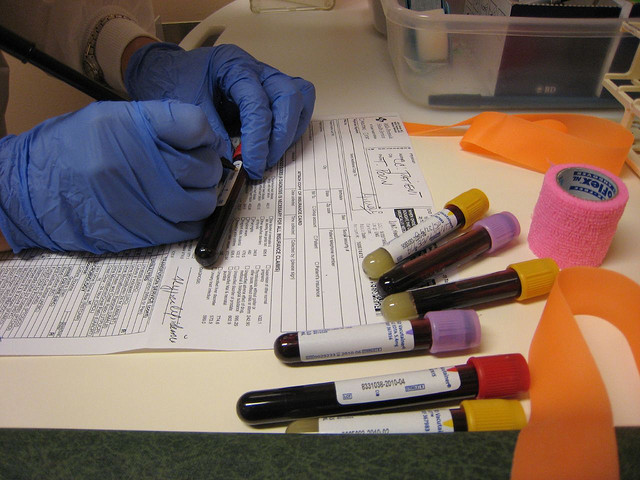
About Breath, Blood, and Urine Tests in Ohio
When you operate a vehicle in Ohio, you do so with “implied consent,” meaning that if you are arrested for OVI (operating a vehicle under the influence) Ohio law requires that you take a test of either your breath, blood, or urine. The arresting officer gets to determine which test you take, and the test must be consented to within two hours of driving.
If you’re arrested and refuse to take the test, you may have your license suspended for one year for the first offense, two years for the second offense, and three years for the third offense.
|
First Offense |
Second Offense |
Third Offense |
More than Three Offenses |
|
|
Refusal to take test |
License Suspended for 1 Year |
License Suspended for 2 Years |
License Suspended for 3 Years |
License Suspended for 5 Years |
In addition to these penalties, you’ll have to pay $475 each time to get your license back. After three offenses, the penalty goes up to a 5-year suspension for refusal to take a test. Officers are not required to inform you of any of these penalties.
The Tests
Blood alcohol content – or BAC – refers to the amount of alcohol in your blood, measured as weight per unit of volume, then converted to a percentage. So if one-eighth of a percent of your blood is alcohol, then your BAC level is .08%, and it is illegal to drive at that level or above.
Breath: The most common way to test a driver’s BAC level is to blow into a breathalyzer. There are two types of breathalyzers – a portable one kept in the police vehicle, and one at the police station. If you are stopped and the officer has probable cause to arrest you for Operating a vehicle under the influence, they may request that you take a breathalyzer test.
Blood: Blood tests are generally more accurate in determining BAC in a person’s body. According to Ohio law, a qualified medical technician must conduct blood tests. Though blood tests are thought to be more accurate, improper handling may compromise these tests.
Urine: Breath tests can only be used to test alcohol levels, so often when other intoxicants are suspected, a person may be told to provide a urine sample. Specific procedures must be followed to ensure the accuracy of the sample.
Defending Against Blood, Breath and Urine Tests
Not all Franklin County DUI attorneys are created equal. If you are being accused of driving under the influence in Franklin County, you need the representation of an experienced, trusted DUI attorney. The Maher Law Firm can help make sure that your rights are protected. Founding attorney, Colin Maher is a National Highway Traffic Safety Administration (NHTSA) certified practitioner for field sobriety testing, which is the same training police officers take. This training helps him evaluate and challenge the evidence collection involved in the BAC test process. Call The Maher Law Firm today for a free consultation about your situation at 614-205-2208 or contact us online.
RECENT POSTS
-
What is Improperly Handling Firearms in a Motor Vehicle in Ohio?
07 Mar 2025
-
What is the Difference Between OVI and DUI in Ohio?
05 Mar 2025
-
What Happens When You File a Police Report on Someone For Harassment
11 Dec 2024
-
How to Move for Dismissal for OVI in Ohio
28 Oct 2024
-
Ohio Fraud Laws: Fraud Charges and Their Penalties in Ohio
12 Sep 2024
-
Can Dismissed OVI Be Expunged in Ohio?
02 Sep 2024
BLOG CATEGORIES
-
Traffic
126 Posts
-
Weapons
3 Posts
-
Drugs
22 Posts
-
DUI
195 Posts
-
Current Events
1 Posts
-
Expungements
2 Posts
-
News
18 Posts
-
Criminal Defense
45 Posts


